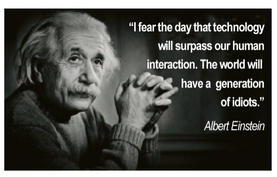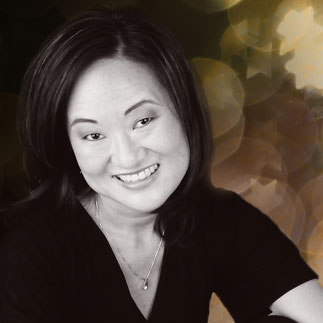| "How I Built This" presents stories of how entrepreneurs began their successful businesses. I enjoy hearing people's stories and learning from them. Their grit, endurance, vision, and ambition inspire me and cause me to STOP TO THINK about how I would have navigated the same circumstances. The stories that have stayed with me in this podcast include the testimonies of Lyft, Kate Spade, LÄRABAR, Patagonia, and Southwest. Listen to their stories as you exercise or drive. They will always make you STOP TO THINK. |
|
0 Comments
 One of my favorite teachers is Oprah Winfrey. She teaches me lessons that always make me STOP TO THINK, and her podcasts are no exception. Brief, insightful lessons where people share their insights on life. I am left thinking about the lessons for days, and I inevitably end up sharing them with others. Listen to them while you exercise or drive to work. My favorites include Brian Grazer, will.i.am, and Stephen Colbert. Start with one of these and you will be hooked! Download the Podcast: https://itunes.apple.com/us/podcast/get-it-done-guys-quick-dirty/id268557178?mt=2
One of my colleagues just told me about this podcast, and after listening to my first 8-minute podcast, I am still thinking about the lessons that were packed within it. Short lessons that teach me how to work less and do more--YES! I am intrigued. In his podcast, "Sometimes Doing a Perfect Job Means Stopping at 60%." Stever Robbins recalls a story about how he delivered a high quality project once that totally impressed his boss. His boss commented that his work was nearly perfect and display 97% quality level of work - amazing! However, the boss also pointed out that Stever spent 90% of his time getting the quality of your work from an 83% level to a 97% level, and most people are satisfied with a 60% level. Perhaps Stever should have settled for 83%? 97% ~ 83% ~ 60%...this has made me REALLY stop to think about how I use my time. I am a perfectionist. I aim to deliver the highest quality of work always, often to the detriment, I must sadly confess, of my own health and wellness. This podcast has made me rethink how I invest my time. Could it be that a perfect job means stopping at 60%? I'm willing to find out! Lessons from this podcast that have stayed with me:
In the best selling book, Good to Great, Jim Collins writes about businesses who went from good to great. One attribute of these companies that Collins points out is not just that they had different people on their "bus" to complete work effectively, but they had the "right" people on the bus. Work can be accomplished most efficiently when talented people are able to share their talents in positions that are best suited to highlight and use their skills in the workplace. In the long run, companies will benefit from the work production of these happy employees.
This has also made me think about the people in my village, meaning the community in which my sons are growing up and the "right" people who are in it---those who have helped to shape their morals, values, and beliefs. I often say to my dear friends that I know that it takes a village to raise a child, and I am grateful that they are in mine.  I am thankful for social media because it allows me to stay connected with people who I once thought I might never see again. In this sense, I am able to still be a part of communities that may have dissolved in my life without social media. And yet, I am saddened when I am at events or when I daily see people gathering together, only to be engaged with their phones or mobile devices to tell others about what is taking place. They appear more concerned about connecting with the people that they are not with than with the people with who they are with in that moment. I am guilty of this also. I'm uncertain of the resolution. I just acknowledge the dilemma, just as Einstein did. People tell me all the time--"It goes by fast." Raising children, that is. It goes by fast. My oldest son's junior year of high school will be over soon, and he will be a senior. His final year in high school, and his last year at home. There are certain phrases like, "It goes by fast", that people have often shared with me, and it's clear to me that these sayings have been coined from experience and truth. And now, I reach another point in my life's journey when such a phrase has proven to be true.
I recently read the book Blink by Malcolm Gladwell, and if you haven't read it, I highly recommend it. I took about a year to read it because Gladwell made me stop to think so many times. One particular point that he made in the book dealt with tall people. "Most of us, in ways that we are not entirely aware of, automatically associate leadership ability with imposing physical stature," Gladwell says. "We have a sense, in our minds, of what a leader is supposed to look like, and that stereotype is so powerful that when someone fits it, we simply become blind to other considerations." (Read more: http://www.businessinsider.com/tech-tallest-execs-2012-11?op=1#ixzz2Y6VXsh00)
This quote has really made me stop to think, especially given that I am only about 5 feet tall. I believe that there is a preconception that people have when seeing a short, Asian female. I notice a difference in how people respond to me when I wear heels to elevate my height or when I decide to wear flats; I also notice when people seem pleasantly surprised by my leadership or speaking abilities when I present at professional conferences or meet them informally in the workplace. In a blink, people are quick to judge, and clearly the relationship between physical stature and leadership have been strongly correlated, whereas short Asian females and leadership roles have not. So, this causes me to stop to think about how I can surpass these quick judgments and be the exception to this unwritten rule and stereotype. "Time is all you have. And you may find one day that you have less than you I began listening to Randy Pausch's book, The Last Lecture, this past week. I find that I have a lot in common with the author because he was a parent and tenured professor who was intentional about how he spent his time, especially given his battle with pancreatic cancer. I have stopped many times while reading his book, and I find myself choosing not to complain or not to be negative, rather to move on and to spend my finite time more productively or more positively. Professor Pausch has reminded me that all our time is finite, not just those who have been sadly diagnosed with cancer, and it is in how we choose to respond to use this finite time that sets us apart. I would say that this is truly one of the most important lessons I could teach really anyone.
Rest. I'm not very good at it. I don't do it often and when I do, I feel bad that I'm doing it. I think I've trained myself to be bad at it though. I'm an educator, and I've never been able to keep my work at the office. I know teachers who finish their work at school but truthfully not many of them. I work, come home to family, kids' homework, and dinner, and then afterwards, I usually go straight back to my computer and work more. If I do this over and over again, I think I'm training myself to perpetuate this unhealthy behavior.
Today while talking to a colleague about my difficulty with resting, I had confessed that I had ideas of completing some work over the weekend, and I didn't get to it as I had planned. Instead, my weekend was filled with watching my younger son play soccer, shopping for a Homecoming outfit with my oldest son, taking pictures of him and his beautiful date before the dance, spending time with my husband, and celebrating my oldest son's birthday with amazing friends who invest in him and love him. No time for work...and I wonder if for some unexplainable reason, that was the world telling me just to rest. I'm gonna give it a try. And I hope I get better at it. Identity. It's so interesting how we are branded...how people identify us. I notice when I run into people, they ask about me, what I'm doing, and with which institution am I affiliated with these days. And yet if there is any change to any of these things after awhile, it can honestly be a struggle to make sense of it inwardly and manage it outwardly. I've experienced this in my career as I moved from one K-12 school to another and then to teaching at a university; I evolved from teacher to professor and spent some time rethinking my response when asked to describe my new identity in higher education. I see identities changing in my friends' lives as well--when they lose a loved one, they are no longer someone's spouse, they are identified as a widow. One may not be considered a teacher anymore after being promoted to an administrative role. A mom who has chosen to leave teaching to raise her children...is she not a teacher anymore? Identities...sometimes we have created one without realizing it and then when it changes, this can be difficult. And yet when we stop to think about who we are and it matches with who we want to be, it can be extremely satisfying.
|
Dr. Stella ErbesDr. Stella Erbes is a teacher at heart. Her passion to teach and help others has led her to compose this site full of resources. Dr. Erbes is a university professor and teaches education courses which help prepare future teachers. She hopes that the lessons prepared here will lead her readers to exceptional food, unforgettable travel, and better living. Stop to Think
June 2018
Tags
All
|



 RSS Feed
RSS Feed
